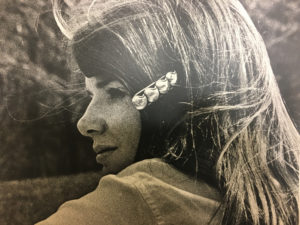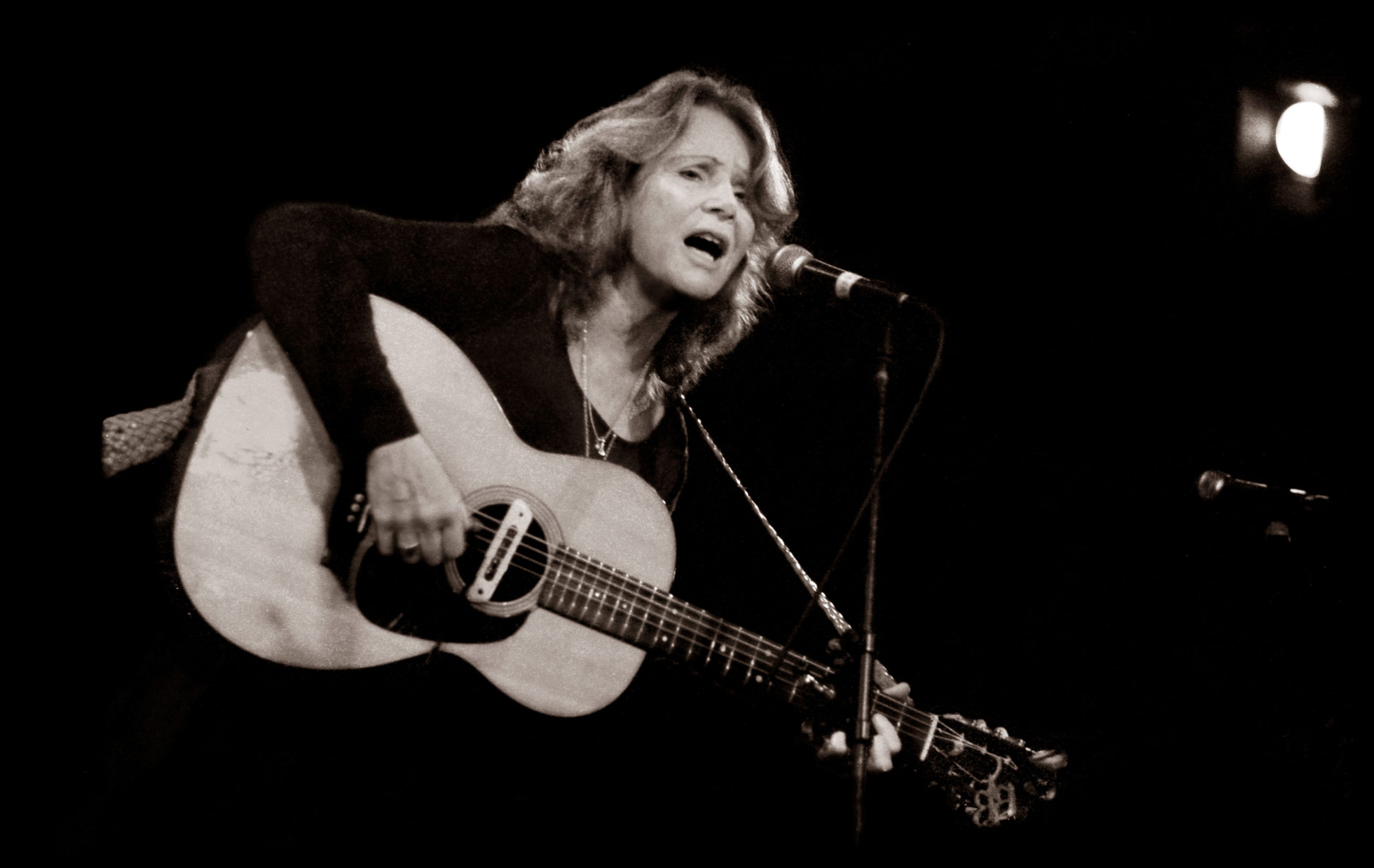Bonnie Dobson’s Song, “Morning Dew”, to be Inducted into the Canadian Songwriters Hall of Fame at Mariposa Folk Festival
Posted onBonnie Dobson’s anti-nuke protest ballad, Morning Dew, was inspired by the award-winning 1959 film “On the Beach,” based on Nevil Shute’s novel about the extinction of humankind in the aftermath of nuclear war.
At the height of Cold War tensions in 1961 Dobson, a folk singer, was performing in Los Angeles at the Ash Grove club. She had been deeply moved by “On the Beach,” and after discussing the film with friends, composed Morning Dew. “I had never written anything in my life…. this song just came out and really it was a kind of re-enactment of that film in a way where at the end there is nobody left…. apocalypse, that was what it was about.”
Morning Dew is a dialogue song between the sole surviving woman and man; she is naïvely in denial; he is the hopeless voice of doom. Radiation has turned the morning dew – yesterday’s life-giving water – into an annihilator. In the film, the Australian government issues suicide pills so people can hasten death; Dobson’s line “I thought I heard my baby cryin’ ‘mama’ / You’ll never hear your baby cry again” recalls the scene where the horrified young mother realizes she must give her infant a suicide pill. Dobson’s mournful descending melody effectively portrays the nuclear rainfall and humanity’s downward spiral.
 Dobson performed Morning Dew, accompanying herself on acoustic guitar, at the first Mariposa Festival in Orillia in 1961 then in New York City in 1962. A 1969 orchestral version was produced by Jack Richardson (The Guess Who’s producer).
Dobson performed Morning Dew, accompanying herself on acoustic guitar, at the first Mariposa Festival in Orillia in 1961 then in New York City in 1962. A 1969 orchestral version was produced by Jack Richardson (The Guess Who’s producer).
From these folk roots Morning Dew metamorphosed into a powerful blues-rock protest anthem, with subsequent singers adding lyric variations. On his 1964 recording with Vince Martin, Fred Neil (composer of Everybody’s Talkin’) revised the opening line from “Take me for a walk in the morning dew” to “Walk me out in the morning dew.” Next Tim Rose on his 1967 Columbia single copied this and added a line. The Grateful Dead heard Rose’s version and in 1967 premiered their own elongated poignant cover, using electric instruments, at San Francisco’s “Human Be-In.” The song is now strongly identified with the Dead, appearing on several albums including “Cornell 5/8/77” (one of Billboard’s top 15 albums).
Numerous covers followed, notably Lulu’s gritty soul single paired with To Sir, With Love (No. 52 on Billboard’s Hot 100 in September 1968 and RPM’s No. 55). Jeff Beck recorded Morning Dew with Rod Stewart on “Truth” (No. 15 on Billboard’s album chart). The Allman Brothers and Nazareth followed in 1972, the latter also recording it in German as Morgentau in 1981. Blackfoot’s hit on Billboard’s Mainstream Rock chart in 1984 added the line “Thought I saw a flash in the sky this morning.” Some covers add “What they’ve been sayin’ all these years has come true.”
Canadian blues artists Long John Baldry and Serena Ryder have covered Morning Dew, as have acts from Spain, Germany, New Zealand and Ireland. It has been sung in Danish, and in French as “Maman, dis moi pourquoi.”
Dobson performed her song with Robert Plant at the Royal Festival Hall in 2013. On screen, Morning Dew features in “Long Strange Trip” about the Grateful Dead, and Robert Plant sings it in “The Banger Sisters.” The National performed it on Stephen Colbert’s television show in 2016.
In 2018 the “Bulletin of the Atomic Scientists” advanced its Doomsday Clock to two minutes to midnight. Says Dobson about Morning Dew’s relevance today: “Actually I think that the song, if anything, is more of this time, of the present than it ever was then.”
Folk singer Bonnie Dobson was born in Toronto in 1940. Influenced by The Weavers, The Travellers, Pete Seeger and Paul Robeson, she was part of the 1960s’ urban folk movement, appearing often at US colleges and clubs, Toronto folk clubs and festivals, and on the CBC and BBC. She was rated by “Time Magazine” as second in popularity only to Joan Baez, and had hits with I Got Stung (1969) and Good Morning Rain (1970). She moved to London in 1969 and toured extensively in the UK and Europe until 1989 when she decided to return to university. She studied Politics, Philosophy and history at Birkbeck College and ended up running the Faculty of Arts until 2007. In 2013 she returned to the music business, releasing the album Morning Dew.
About the Canadian Songwriters Hall of Fame
The Canadian Songwriters Hall of Fame (CSHF) honours and celebrates Canadian songwriters and those who have dedicated their lives to the legacy of music, and works to educate the public about these achievements. National and non-profit, the CSHF is guided by its own board of directors who comprise both Anglophone and Francophone music creators and publishers, as well as representation from the record industry. In December 2011, SOCAN (the Society of Composers, Authors and Music Publishers of Canada) acquired the CSHF. The Hall of Fame’s mandate aligns with SOCAN’s objectives as a songwriter and publisher membership-based organization. The CSHF continues to be run as a separate organization.
